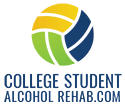If you’ve recently lost your job, broken up with your significant other, or lost a loved one, you may be tempted to drown your sorrows with alcohol. While this may seem like a good idea, you should be careful that it doesn’t become a regular thing. If you’ve begun needing a drink every time you’re feeling a little blue, it could be a sign that you’re becoming dependent on the alcohol. Research has shown that there is a significant link between alcohol and depression. This link may lead people to ask, “Did my drinking lead to depression, or did my depression lead to my drinking?” In truth, both situations are possible. To learn more about the connection between alcohol and depression, contact the experts at Summit Estate today.
The Link Between Alcohol and Depression
Nearly a third of those who struggle with depression also struggle with alcohol abuse. Sometimes, depression comes before substance use. Recently, researchers have proven that kids who are depressed are more likely to struggle with alcohol use later in life. Furthermore, teens who struggle with depression double their chances of drinking over those who do not struggle with this mental illness.
The link between alcohol and depression doesn’t end when you hit 18, however. Women with depression are also more likely to start drinking heavily, and they might be more likely to overdose as well when they’re down.
While drinking to relieve your feelings may seem like a good thing, your alcohol use only makes the mental illness worse. Those who abuse alcohol and have depression tend to have more severe bouts of this disease. Furthermore, they are more likely to consider suicide. Unfortunately, using alcohol heavily can also make your antidepressant medications less effective.
Signs that Your Drinking Has Gotten Out of Hand
Now that we understand the link between alcohol and depression, it’s important to know when you have an alcohol addiction. Experts look for 11 key signs that indicate how severe a person’s alcohol addiction is. If you’re showing two or three of these symptoms, you may have a mild addiction. However, showing four or five of these signs indicates a moderate addiction, and six or more of these signs show that you have a severe addiction that requires immediate treatment at an alcohol addiction treatment center. The symptoms of alcohol addiction include:
- You habitually drink more or for more extended periods of time than you originally meant to.
- You want to cut down on your alcohol use, but you’ve been unable to do so.
- You’re spending a significant amount of time getting, using, or recovering from using alcohol.
- You experience urges or cravings for alcohol.
- You’re unable to complete responsibilities at home, work, or school due to your alcohol use.
- You continue to drink, even though it causes problems in your relationships.
- You’ve given up important professional, social, or hobby activities to use alcohol.
- You use alcohol repeatedly, even though your drinking has put you in danger.
- You continue to drink, though you know it causes your mental health condition, like depression, or physical health worse.
- You’ve developed withdrawal symptoms when you don’t drink. These symptoms go away only when you have another drink.
- You need more alcohol to get the same effect, meaning that you’ve developed a tolerance.
If you’ve developed a mild, moderate, or severe addiction to alcohol and depression has followed or gotten worse, it’s essential to get help.
Contact Summit Estate Today
At Summit Estate, we’re proud to offer dual diagnosis treatment to those who struggle with alcohol and depression. Dual diagnosis treatment allows us to treat both conditions at the same time, giving you the best chance for long-term recovery. We offer several options for treatment, including:
- Alcohol detox
- Residential treatment
- Partial-hospitalization treatment
- Intensive outpatient treatment
- Aftercare
To learn more about treatment for alcohol and depression, contact Summit Estate today at 800.701.6997.
Summit Estate Recovery Center
